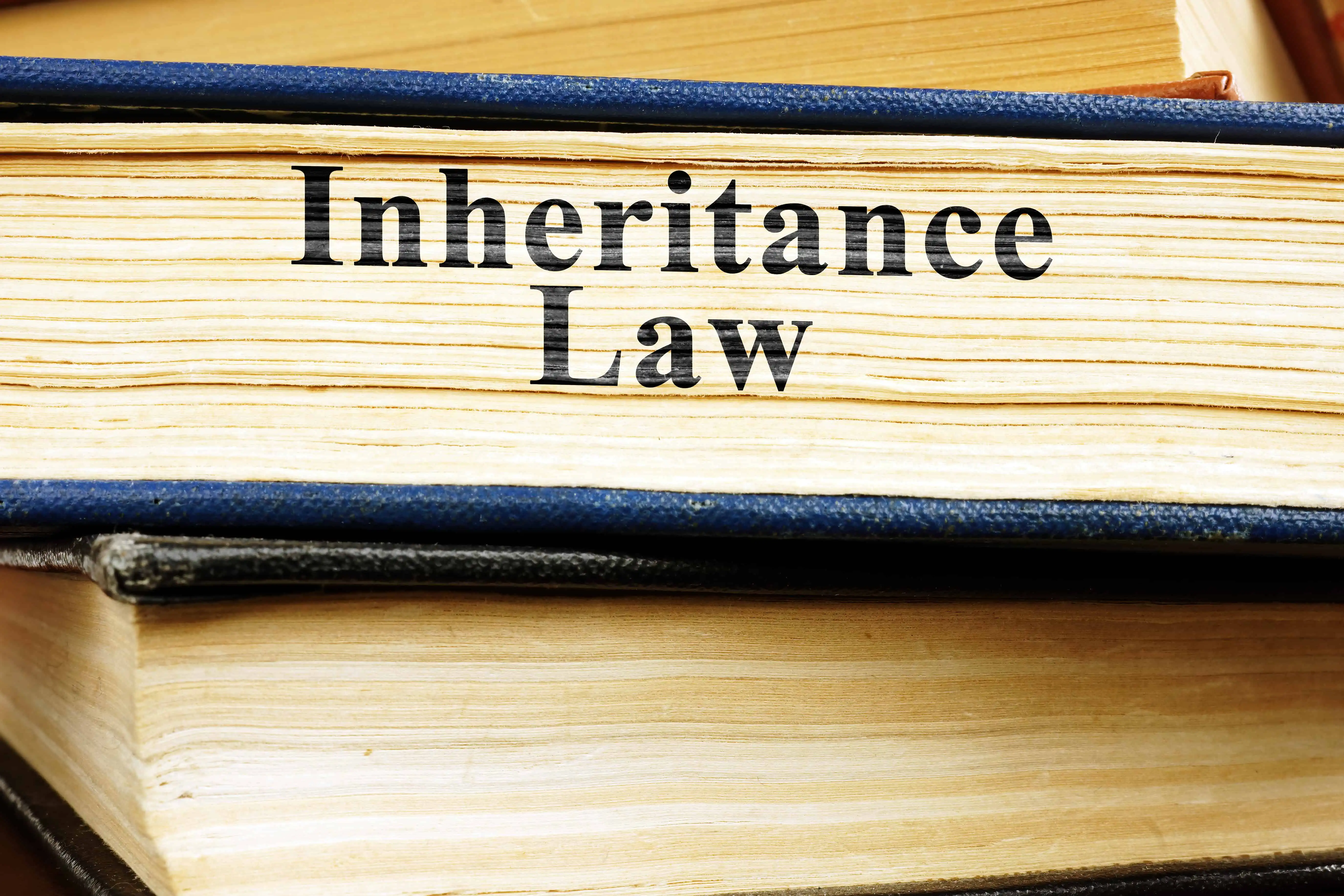
Ever pondered what befalls your possessions when you’re no longer around? Or who’ll make decisions on your behalf if you can’t?
Welcome to the world of Florida Estate Planning.
This post will be different – it’s like having a GPS guiding through the winding roads of Florida’s estate law. From understanding key documents like Wills and Living Trusts, navigating probate process intricacies, to strategizing asset protection.
No more fear or confusion. Ready for an enlightening journey?
Table Of Contents:
- Understanding Florida Estate Planning
- Essential Documents for Effective Estate Planning in Florida
- Navigating through Probate Process & Avoidance Strategies
- Asset Protection and Business Succession Planning in Florida Estate Planning
- FAQs in Relation to Florida Estate Planning
- Conclusion
Understanding Florida Estate Planning
Estate planning in the Sunshine State is more than just drafting a will. It’s about ensuring your assets are distributed according to your wishes, taking care of loved ones, and minimizing taxes. So let’s demystify some common misconceptions about Florida estate planning.
One major misunderstanding? The idea that estate planning is only for the wealthy or elderly. Not so. No matter your current life situation, possessing a strategy for estate planning can provide you with tranquility and guard your interests.
The Importance of Estate Planning in Florida
An effective will, which forms part of a broader estate plan, does far more than simply divvying up belongings after death. Rather, it sets out clear instructions on how to handle affairs if one becomes incapacitated – avoiding unnecessary confusion or disputes among family members.
A well-structured will also minimizes probate expenses and potential tax liabilities – keeping as much wealth within the family as possible.
Key Elements of a Florida Estate Plan
Your comprehensive Florida Estate Plan would typically include five main documents: A last will and testament; power of attorney; health care advanced directive; living will; declaration of pre-need guardian.
Power Of Attorney (POA), allows someone trusted to make financial decisions should one become unable to do so themselves.
The next important document is an advance healthcare directive (also known as Living Will). This clarifies medical treatment preferences when one cannot express personal wishes due to illness or incapacity.
Lastly comes a declaration appointing a pre-need guardian. This individual will take over the care of minors or dependents in the event of one’s death.

Common Misconceptions about Florida Estate Planning
The most common misconception is that estate planning is only for those with substantial wealth when it’s really about ensuring your loved ones are taken care of no matter how large (or small) your nest egg may be.
Here’s another myth busted: thinking you can create an estate plan and then never look at it again.
Florida estate planning isn’t just for the rich or old – it’s about securing your legacy, protecting loved ones, and minimizing taxes. It goes beyond a will to include documents like power of attorney and healthcare directives. Don’t fall into the trap of thinking once you’ve done it, you can forget about it; regular updates are key.
Essential Documents for Effective Estate Planning in Florida
The path to effective estate planning starts with understanding the key documents. These tools shape how your legacy unfolds, especially within the unique landscape of Floridian law.
The Role and Importance of a Will
A will is like a compass, guiding your assets after you’ve sailed into the sunset. It’s no surprise that it forms the cornerstone of any solid estate plan.
In Florida, a Last Will and Testament determines who inherits what from your earthly possessions – think houses or heirloom teapots. But not only does this dictate who inherits your assets, but also how they receive them. The beauty lies in its flexibility; whether leaving everything to one person or dividing among many, the choice is yours.
If you have minor children, another advantage swings into play: guardianship designation. Your will can specify who’ll take care of them if you’re unable to do so yourself – an essential part of estate planning we often overlook until it’s too late.
Living Trusts – A Closer Look
A Living Trust might seem as complex as assembling IKEA furniture at first glance. Yet once understood and implemented correctly, it proves indispensable in managing estates both big and small.
This document lets you keep control over your assets during life while providing seamless transfer upon death—avoiding probate court entanglements which are more common than alligators in Everglades. No matter how prepared we may feel with our sunscreen on hand for Sunshine State living; having an ironclad trust gives us additional peace-of-mind knowing our affairs won’t cause unnecessary hassle for loved ones later down line.
Not just that, a Living Trust can also help with incapacity planning. In case of unfortunate events leading to mental or physical impairment, the trust ensures your estate remains in trusted hands without court intervention.
Advance Healthcare Directives and Durable Power of Attorney
In Florida’s steamy climate, it’s important to stay hydrated. But when we’re talking about estate planning documents – you’ll want something stronger than water: Advance Healthcare Directives.
Let’s keep the dialogue rolling.
Starting your Florida estate planning journey? Understand key documents. Your will acts as a compass, directing assets and guardianship for minors. A Living Trust is like pre-assembled furniture – complex but invaluable, avoiding probate court issues and ensuring incapacity planning. Finally, sip on Advance Healthcare Directives – they’re stronger than water in managing future health decisions.
Navigating through Probate Process & Avoidance Strategies
In Florida, estate planning necessitates a thorough comprehension of the probate process in order to ensure assets are properly transitioned after death. Understanding its intricacies can make all the difference in how smoothly your assets transition after you’re gone.
The Intricacies of the Probate Process
In Florida, as with most states, when someone passes away their estate typically goes through probate. This legal procedure ensures that debts are paid and property is properly distributed according to the deceased’s wishes.
An overview of the probate process in Florida reveals some complex details worth noting. First off, it’s not a speedy process; on average it takes 6-9 months from start to finish but could last longer if complications arise.
But here’s an interesting twist – did you know there are ways around this? That’s right. You might just be able to dodge this bullet altogether.
Bypassing Probate – The Road Less Traveled?
Avoiding probate may sound like skipping out on paying taxes or sneaking into a movie theater without buying a ticket. But rest assured—it’s entirely legal and often recommended for several reasons:
- Saves time: Remember what we said about 6-9 months? Well imagine bypassing that entire wait period.
- Potentially saves money: While each case varies greatly depending upon complexity and size of an estate, avoiding probate often means fewer court fees and less spent on attorney costs.
- Maintains privacy: Because records from a traditional will go public during probates whereas those transferred outside of court stay private,
The benefits should be clear by now – so the question is, how do we achieve this?
Strategies to Avoid Probate in Florida
The most popular method? Using revocable living trusts. Think of a revocable living trust as an “invisible” container for your possessions while you’re alive.
A revocable living trust lets you keep control of your assets while you’re alive. After you pass, it smoothly transfers to your beneficiaries, skipping the probate process.
Understanding Florida’s probate process and how to avoid it can make a big difference in estate planning. It’s not fast, often taking 6-9 months, but there are legal ways around it like using revocable living trusts. These help save time, money, and maintain privacy by keeping your assets out of court.
Asset Protection and Business Succession Planning in Florida Estate Planning
Protecting your hard-earned wealth or business for the benefit of those you love is a natural priority. But let me tell you something, not all asset protection strategies are created equal—especially here in sunny Florida.
In this game of estate planning chess, we’re going up against unexpected lawsuits and creditors that might fancy a piece of your financial pie. “What’s the point of them having cravings for our dough?” That’s a valid inquiry. But instead of asking why others have an appetite for our earnings, let’s focus on cooking up some ironclad strategies.
The Basics: Understanding Asset Protection in Florida
You see folks; asset protection is about safeguarding those precious resources from potential future creditors’ claims. Think Bruce Wayne designing his Batcave—it’s not just about hiding away valuables but ensuring they stay secure even when villains come knocking.
We do this by employing legal methods that deter potential claimants or frustrate their ability to seize assets after a judgment—think Batman laying traps around his treasure trove. This process doesn’t mean cheating rightful claimants out of justified recoveries but avoiding unjust losses due to unwarranted seizures—a real-life superpower if there ever was one.
A Closer Look at Business Succession Planning
Now onto another hot topic – business succession planning in Floridian estate plans. More Info Here. Just as Superman needs Superboy ready for action when he hangs up his cape someday—you need someone trustworthy and capable lined up too. It’s no child’s play preparing them adequately while also protecting the company from disruptions during transitions.
The right business succession plan should be as unique as your fingerprints. No two businesses are the same, and what works for Tony Stark’s multinational conglomerate may not fit a local family-run business.
Planning Ahead: The Right Strategies
Are you pondering over how to safeguard your assets or pick the next in line? No need for any magic tricks, just a bit of smart planning is all it takes.
Asset protection in Florida is like designing a Batcave – it’s not just about hiding wealth, but making sure it stays secure against creditors and lawsuits. Business succession planning, on the other hand, is all about preparing your company for smooth transitions while picking the right successor. No magic tricks needed here – just smart planning.
FAQs in Relation to Florida Estate Planning
What is the average cost of estate planning in Florida?
Estate planning costs can range from $1,500 to $5,000 in Florida. It all depends on your needs and complexity.
How much does an estate have to be worth to go to probate in Florida?
In Florida, estates valued over $75k or with real property must go through formal probate unless they’re protected by a trust.
What estate documents do I need in Florida?
You’ll need key docs like a will, durable power of attorney, healthcare directive and possibly a living trust for your Floridian Estate Plan.
What is an estate plan in Florida?
An Estate Plan secures assets for loved ones’ future use. Involves legal documentation such as wills and trusts under Floridian law guidelines.
Conclusion
Florida Estate Planning might have seemed daunting at first, but not anymore.
We’ve unveiled the significance of a well-crafted Will and the role it plays in safeguarding your legacy. We explored Living Trusts – a tool to dodge probate’s winding path.
Speaking of probate, we dug into its intricacies and how best to avoid it. Remember, time spent planning now saves loved ones trouble later.
Finally, protecting assets isn’t just about locks and alarms; strategic planning goes a long way too. Business succession? Sorted!
The journey through Florida estate law doesn’t need to be scary or confusing. You’re armed with knowledge; use it wisely!
If you need help securing the future for your family or would like to learn more about estate planning, give us a call at (954)820-8535 or send Mark a direct email at Mark@markmlegal.com




